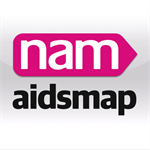
Two recent qualitative studies highlight Jamaican men who have sex with men (MSM) and transgender (trans) women’s heightened vulnerability to HIV. These groups are at higher risk of infection as a result of various socioeconomic inequalities — homelessness, lack of employment, the criminalisation of same-sex practices and high levels of stigma and violence.
As a result of poverty, both groups frequently engage in transactional sex. Sexual decision-making, pleasure and risk management strategies are based on immediate needs for protection, food and shelter; this is navigated in the context of heightened socioeconomic inequalities and daily survival challenges.
The studies were published in Culture, Health & Sexuality by Dr Orlando Harris at the University of California San Francisco and in Reproductive Health Matters by Dr Carmen Logie and colleagues at the University of Toronto.
Jamaica has the highest HIV prevalence among MSM in the Caribbean, estimated at 32%. It is similarly high for transwomen at 25%. This is compared to a 1.7% prevalence of HIV in the general Jamaican population. Additionally, MSM account for 40% of all new infections in the country. Jamaican law criminalises consensual anal sex between men and offers no protection against anti-LGBT discrimination. This has resulted in pervasive stigma and discrimination towards those who are non-conforming in terms of either gender or sexuality. This stigma is pronounced structurally and institutionally, often manifesting in healthcare and employment settings. These factors leave MSM and transwomen at a social and economic disadvantage, increasing vulnerability to HIV infection.
Orlando Harris’ study considered only MSM (30 participants, mean age 22); 20 in-depth interviews and a focus group with ten men were conducted to explore their experiences, decisions around sexual risk and barriers accessing HIV testing and prevention services. Most men (30%) had some college education, with 36% indicating they were self-employed (which could include sex work). A large percentage (40%) had been forced into their first sexual experience.
Carmen Logie’s study included both MSM (20 participants, mean age = 22) and transwomen (20 participants, mean age = 23). Two focus groups (with ten MSM and eight transwomen respectively) were conducted as well as in-depth interviews with all 40 participants. Additionally, 13 in-depth interviews with key informants such as HIV clinicians and outreach workers were conducted. Both studies had an age range of 18-30 and used purposive sampling with most participants living in Kingston, Jamaica.
There was a high degree of thematic overlap emerging from the interviews and focus groups of both studies. The combined results are presented below.
